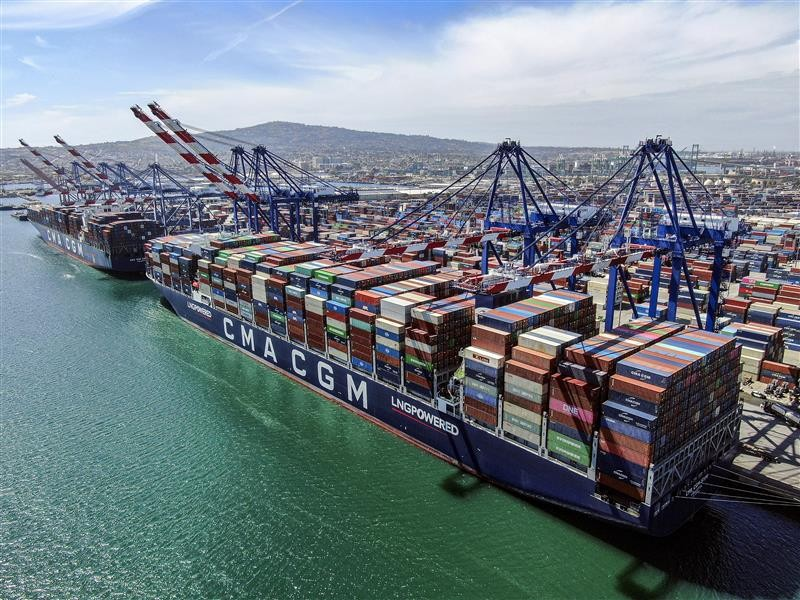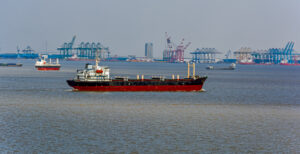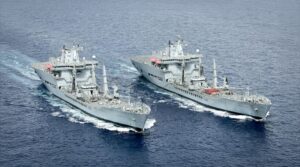
The Strait of Hormuz remains open and commercial vessel traffic continues to flow despite reports of electronic interference in the region. However, shipowners like MOL are beginning to exercise caution in the light of the military strikes. Meanwhile, the French liner company CMA CGM confirmed that maritime transport activities are proceeding as normal in the area, and its operations and logistics chains remain unaffected.
Following the latest outbreak of hostilities between Israel and Iran that commenced on June 13, a number of nations, including Greece, have issued repeated instructions for their merchant shipping fleets approaching the area as the long-running conflict between Iran and Israel escalated after Israel’s attack early Friday on Iranian nuclear and military targets.
Japanese shipowner Mitsui O.S.K. Lines (MOL), one of the country’s largest shipowners, with a fleet of dry bulkers, LNG carriers, car carriers, and tankers, issued a statement yesterday regarding its vessels transiting the Strait of Hormuz, the key chokepoint for oil and gas ships, amid heightened tensions between Israel and Iran.
The Japanese shipping major says that it has been taken advice and insights from a number of sources with knowledge of the region, ready to respond at short notice, in addition to the company’s safety operation supporting center that operates constantly.
The Tokyo-headquartered company, operating over 900 vessels worldwide, is closely monitoring the situation in the region, particularly the Arabian Sea and the Straits of Hormuz, based on the company’s risk management policy, a company spokesperson said Monday.
MOL also commented: “As a major shipping line serving international markets, the developing situation in the Middle East is of great concern. MOL’s priority is the safety both at sea and on land together with our customers’ cargoes.”
In response to the evolving geopolitical context in the Middle East Gulf area, the French liner company CMA CGM has activated a dedicated monitoring cell to watch closely all the developments and to ensure maximum safety for its operations and for the client’s cargo.
“At CMA CGM, the safety of our teams, vessels, and cargo is our priority,” it said.

Photo credit: CMA CGM
Israel’s attack on Iran’s military and nuclear infrastructure on Friday has been followed by four days of escalating warfare.
It has prompted shipowners to exercise an extra degree of caution in both the Red Sea and the Strait of Hormuz, a critical gateway to the world’s oil industry.
“For employees including seafarers working in the Middle East (Oman, Qatar, UAE and Turkey) or travelling in business we are closely following government guidelines and safety protocols and are keeping in touch with those on the ground,” a spokesperson from MOL said.
Despite the rising tensions in the Middle East, given the Israel-Iran strikes, companies and vessels continue to navigate the seas with caution, as some ocean carriers try to avoid the Red Sea showing no intention to go back in mass.
Analyst Peter Sand at Xeneta – the ocean and air freight intelligence platform – said this escalation makes a largescale return of container ships to the Red Sea seem less likely, a situation which continues to have a major impact on ocean container shipping rates 18 months after Iran-backed Houthi militia in Yemen began attacking vessels in the region.



